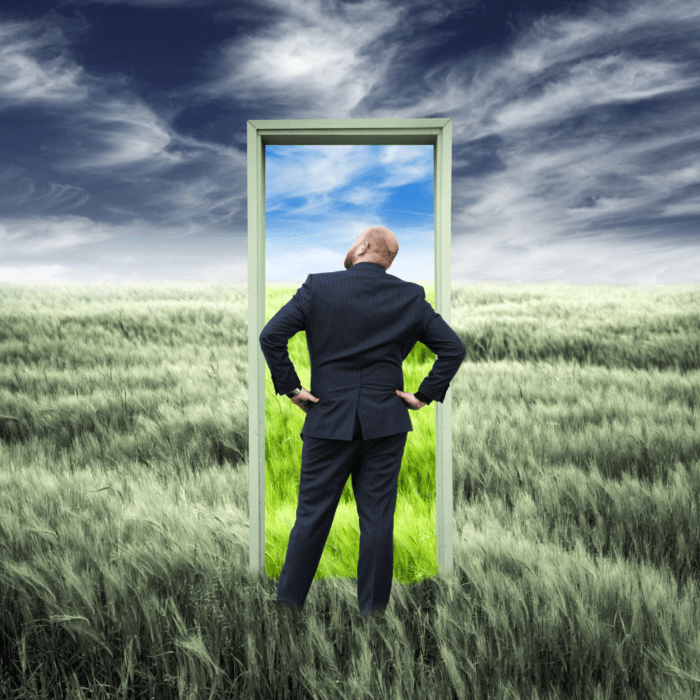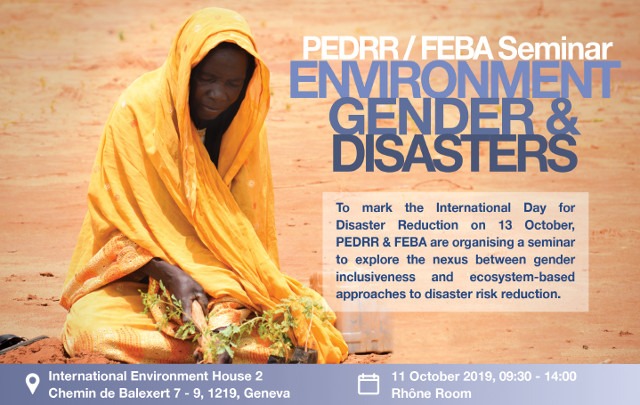

Last Friday at the International Environment House in Geneva, GBN participated in a conference on the role of women and gender minority groups in disaster risk reduction. Lead by delegates from the Partnership for Environment and Disaster Risk Reduction (PEDRR) and the United Nations Environment Programme (UNEP), the agenda included different presentations and a panel discussion with concrete examples from the field.
Let’s talk about the environment in terms of ecosystems. Everyone knows that disaster risks, increased by climate change, constitute a massive coming threat with important impacts on populations living in danger areas. Little by little, people seem to understand that ecosystems may be a solution for reducing disaster risk: for example, mangroves, seagrasses and corals have been proven to reduce wave energy; forests and other vegetation can reduce landslides by stabilizing the soil.
An approach has been created by PEDRR and UNEP, which is called “Ecosystem-based Disaster Risk Reduction”, known as Eco-DRR. It consists of using ecosystems to mitigate or prevent possible disasters. For over 10 years, the UN Environment has been working to develop global awareness of the role of ecosystems in disaster risk reduction. It is slowly beginning to be better understood globally.
While understanding environmental aspects, we need to include gender. Protecting ecosystems is important, but it is also important to acknowledge the extensive and balanced involvement that women play in the conservation and management of ecosystems.
Taking the recent devastating floods in Kerala, India, we saw that there was a different gender impact during and in the aftermath of the floods. More men were outdoors and therefore impacted by the sudden rise in water or landslides. The harmful perceptions of masculinity also resulted in warnings going unheeded and other risky behaviours. On the other hand, women were disproportionately burdened by moving homes and possessions, and many at the same time had to assume the role of primary caregiver.
So what are the recommendations to help these women? Speakers say that we need to raise gender awareness and sensitization and empower women by upgrading their skills and improving their livelihood opportunities.
In these sensitive areas, the DRR tries to study the underlying gendered causes and effects of disasters vis-à-vis ownership over natural resources and recognize women as stewards of natural resources who can assist in disaster risk preparedness. There is still a long way to go, but the solutions to these challenges are there!
At the end of this very interesting discussion, we were treated to the launch of a new sourcebook, entitled “Disasters and Ecosystems : Resilience in a Changing Climate”. It contains eighteen chapters about different themes such as gender in disaster risk reduction, ecosystem management contributions pre- and post- disasters and the way to link ecosystems and humans to disasters.
Finally, we had the chance to have a sneak preview what the Eco-DRR Virtual Global Support Center will look like. An incredible interactive website, where you will be able to assemble different maps one above the other based on many criteria you will have chosen! It will soon be available, so stay focused!
You cannot protect the environment unless you empower people, you inform them, and you help them understand that these resources are their own, that they must protect them. (Wanari Maathai, green belt movement)